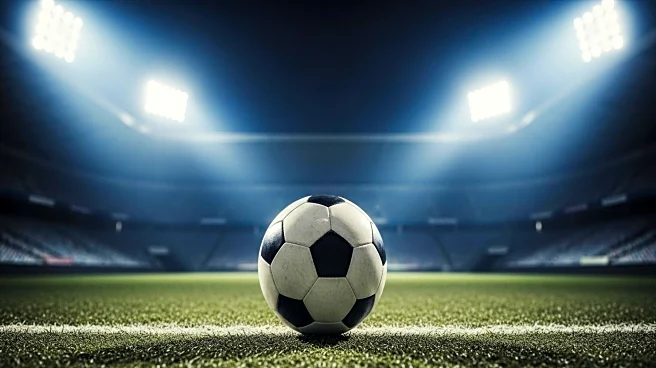What's Happening?
Kwadwo Baah, a player for Watford, is preparing for a potentially hostile reception at Portsmouth following his infamous celebration last year. Baah was sent off after performing a 'Take The L' dance from Fortnite in front of Portsmouth fans, which led to his ejection from the game. Despite the anticipated negative response, Baah expresses enjoyment in the banter and sees it as a sign of his impact on the pitch. Baah's journey in football has been marked by resilience, having been released by Crystal Palace at 14 and working his way back into professional football through Kinetic Academy and Rochdale.
Why It's Important?
Baah's situation highlights the cultural dynamics of football, where player interactions with fans can become memorable and controversial. His attitude towards the anticipated reception reflects a broader trend of players embracing their personalities and engaging with fans, even in challenging circumstances. Baah's journey underscores the importance of resilience and determination in professional sports, serving as an inspiration for young athletes facing setbacks. His story also illustrates the role of academies and grassroots organizations in nurturing talent and providing pathways to professional football.
What's Next?
Baah's upcoming match at Portsmouth will be closely watched, with potential implications for his reputation and relationship with fans. His performance could influence perceptions and either mitigate or exacerbate the anticipated hostility. Baah's approach to the game and his interactions with fans may set a precedent for how players handle similar situations in the future. The match could also impact Watford's strategy and decisions regarding player management and public relations.
Beyond the Headlines
Baah's story reflects broader themes in sports, including the balance between professionalism and personal expression. His experience highlights the cultural significance of player-fan interactions and the potential for these moments to become part of a player's legacy. The situation also raises questions about the role of social media and popular culture in shaping sports narratives and influencing player behavior.









